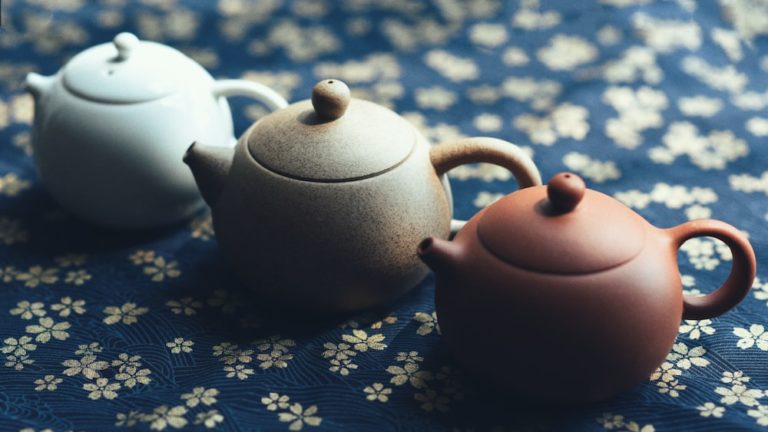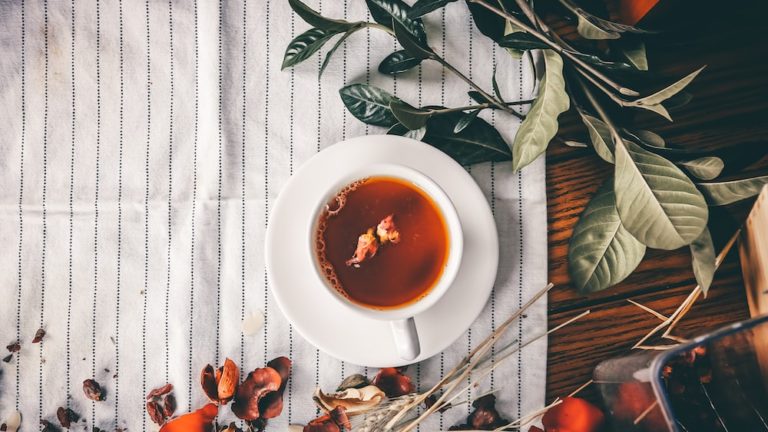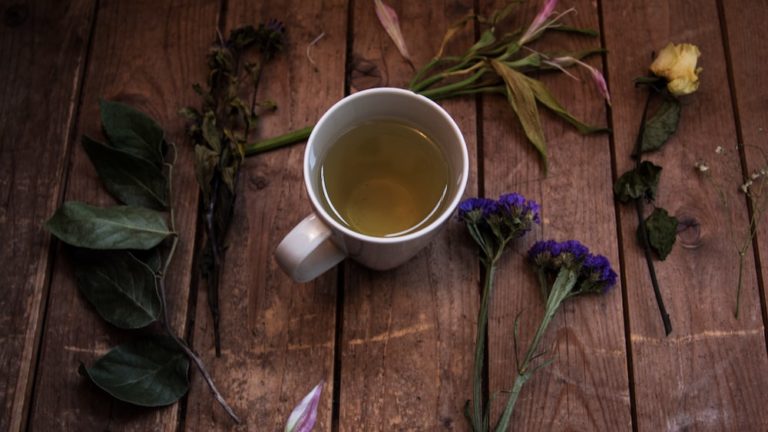Can White Tea Stain Your Teeth? Find Out The Truth
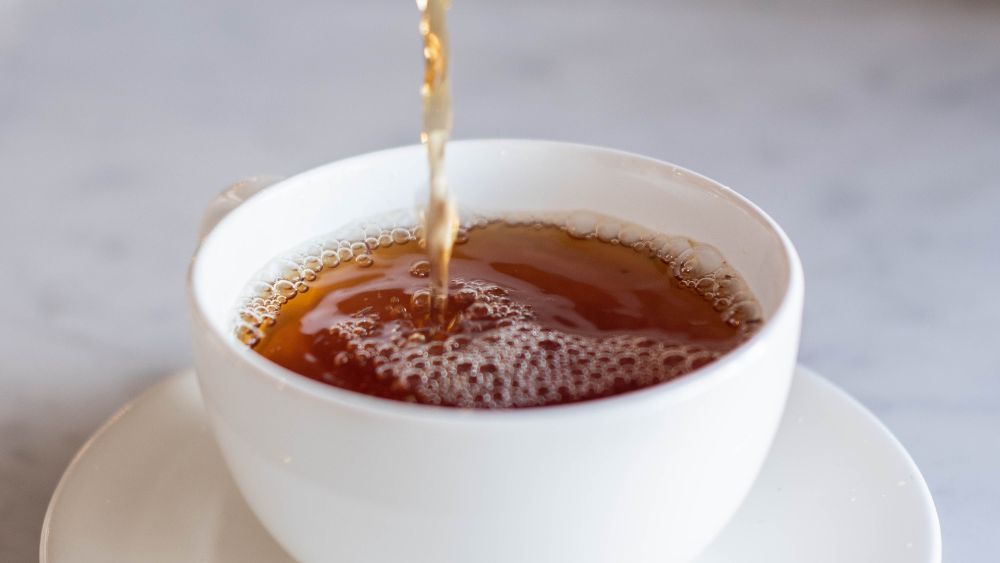
Can White Tea Stain Your Teeth? Find Out The Truth
Hello tea enthusiasts! So you’ve been traversing the broad and exciting landscape of tea – exploring the glamorous heights of bergamot-infused Earl Grey, surfing the depth of soothing chamomile, perhaps even dancing in the understated elegance of our subject today, the white tea. Now, say, where to? A detail too minute or an inquiry too strange never deters a true tea connoisseur. On that note, can white tea stain your teeth? Let’s peel back the layers and delve into the world beneath your teacup. Remember, you’re not alone in this explorative journey; together, we’re stepping into the misty world of tea.
The answer to our question might sound as elusive as the meaning of life, but fret not! Our tenacious team has put on detective caps, brewed hundreds of cups, and sacrificed stained a few dozen teeth (figuratively, of course) to crack the nut. Granted, we have a delightful circuit ahead, colored by everything from tea molecule mysteries to the villains that cause dental discolorations. So brew a cup of your favorite tea and let’s unravel this toothsome issue!
Understanding Tea and Teeth Staining
Teeth staining is more than just a jigsaw puzzle that’s been swept under the carpet. It’s an unsavory sidekick that follows you around, hand-in-hand with certain staple bevies like coffee, wine, and indeed, our beloved tea. To put it into context, let’s go through an introductory tour about what actually causes teeth staining, shall we?
The Science Behind Teeth Staining
Our teeth, despite their deceptively sleek exterior, are a labyrinth of microscopic pits and ridges. Just like a tea sponge, our teeth gather tiny particles from the food and drinks we consume. Now, let’s add tea into the mix. We have our innocent pearly whites minding their own business when they encounter some tea molecules that decide to cling on.
Can’t blame them, can you? Who doesn’t love a good tea bath? But here’s the rub, these molecules, known as tannin, have a notorious reputation for being the chief culprits behind teeth discoloration. Tannin, coupled with the natural pigments of tea, set up camp in your teeth’s tiny crevices and cause staining. The longer they stay, the more the stain builds up, gradually transforming your brilliant smile into a stained mural – all thanks to your refreshing cup of tea.
Tea molecules, especially tannin, cling to the microscopic pits and ridges of our teeth, causing staining and gradually transforming our brilliant smiles into a stained mural.
Why Certain Beverages Cause Teeth Stains
Not all beverages possess the artistic skills to paint your teeth with tints and shades. What’s more, they’ve got their ammo: chromogens and tannins. Imagine these like coloring agents waiting for an innocent canvas – your teeth, to unleash their creative fury! Add a dash of tooth-damaging acid, and voila – you’ve got yourself a recipe for stained teeth.
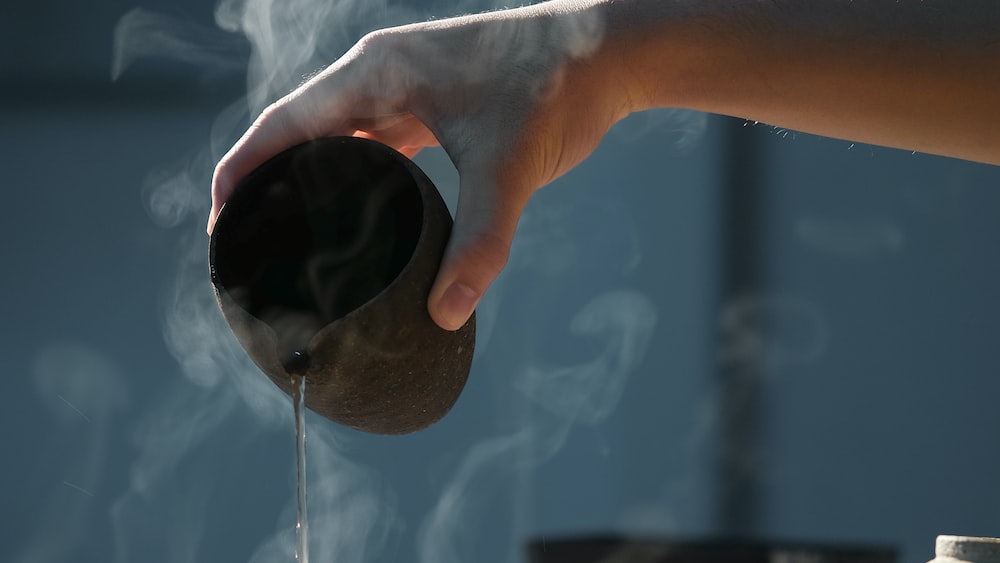
Darker colored beverages like, say, a steamy cup of black tea or a rich espresso, have a higher concentration of chromogens and tannins. That explains why a coffee addict or a black tea aficionado might notice a distinct yellowing or browning of their teeth over time. The good news? Our spotlighted candidate, white tea, is lighter in color and packs fewer chromogens and tannins.
Does White Tea Stain Your Teeth?
We’ve been doing a bit of a dance around our central question, haven’t we? So let’s cut to the chase: Can white tea stain your teeth? It’s time for a bit of hard truth, tea-lovers. Buckle up!
The Composition of White Tea
White tea is often hailed as the poster child for purity and subtlety among its bolder siblings. It’s like the shy poet in a boisterous party, quietly brewing exquisite verses. Made from the youngest tea buds, white tea undergoes minimal processing which allows it to retain a light color and delicate flavor.
However, don’t be deceived by its innocence. Despite its pristine reputation, white tea still carries a fair share of tannins. Because, well, tannin is a part of the tea family tradition. It’s that cousin who keeps showing up at every family event, whether you like them or not. Nonetheless, the concentration of tannin in white tea is significantly lower compared to its darker kin, like black tea or oolong.
White Tea vs. Other Teas: Which Stains More?
So, is your favorite white tea the tooth-staining villain you should fear? Before you grab the pitchforks, hold on! When it comes to teeth staining prowess, the gentler white tea is a lesser fiend than its more robust siblings. As we’ve uncovered, it’s all down to tannin content and color.
Sure, white tea does carry the potential to stain due to tannin, but thanks to its lower concentration and lighter color, it’s like comparing a bonsai tree to a towering oak. So, while your teeth might not emerge unscathed from a white tea spree, the stains will likely be less pronounced than if you were to fall headfirst into the world of black tea. So, in this way, sipping white tea over the darker alternatives is a gentle nod to your teeth care.
Preventing and Managing White Tea Stains
Preventing and managing white tea stains doesn’t mean to bid adieu to your beloved brew. Oh, the horror! Can you fathom a life without those calming sips? Trust me, as a fellow tea enthusiast, I can’t either. So, let’s navigate through some tips and remedies to keep our teeth from resembling a dentistry nightmare.
Tips to Reduce Teeth Stains from White Tea
Before we dive into our ventures of how to fight off the evil stain lord, let’s just plant this thought, “Prevention is better than cure.” Glad we agree! Now let’s ensure that our pearly whites stay as they are, and the question “Can white tea stain your teeth?” becomes just a distant memory.
First up, swish and spit. This isn’t strictly a tea party rule, but might as well be. After finishing your favorite cup of white tea, take a moment to swish around water or a stain-removing mouthwash in your mouth, and then spit it out. This ensures that your teeth won’t be soaking in the tea and its potential staining compound for too long.
Second, say “NO” to sipping throughout the day. Picture this, you’ve got your trusty flask filled with white tea and you’re taking small sips throughout the day. Surely, small sips can’t do any harm, right? Wrong! It’s like bathing your teeth in a mild solution of teeth dye.
Thirdly, remember to brush and floss regularly. While this may seem like basic hygiene, its significance cannot be highlighted enough. A good oral hygiene routine removes any remnants of white tea that could foster stains over time.
Remedies to Remove Tea Stains from Teeth
Now, assume we’re in a parallel universe where our white tea has been successful in its evil plan and managed to leave behind a stain. How do we fight back? Well, trust me, there are some easy-peasy lemon-squeezy (Yep, lemon could work!) remedies right under our noses.
Firstly, consider environment-friendly and kitchen-ready baking soda. Surprised? A study published in the Journal of American Dental Association assert that baking soda has stain removal properties – for that movie-star smile.
Secondly, the power of fruits is real. It’s not Hollywood special effects. Strawberries and oranges with their natural acidity can help break down and remove some of the stubborn tea stains. But remember, they also have sugars, so rinse and brush afterwards!
Lastly and interestingly, oil pulling with coconut oil holds promise. This age-old Indian medicinal practice cleans your teeth and gums, leaving you with a brighter smile.
Baking soda, strawberries, oranges, and coconut oil are all effective remedies for removing tea stains and achieving a brighter smile.
The Impact of Other Factors on Teeth Staining
While white tea may or may not be guilty, there are certainly other felons on the loose that are guaranteed to taint your smile. Factors ranging from oral hygiene to dietary choices and even genetics play significant roles in teeth staining.
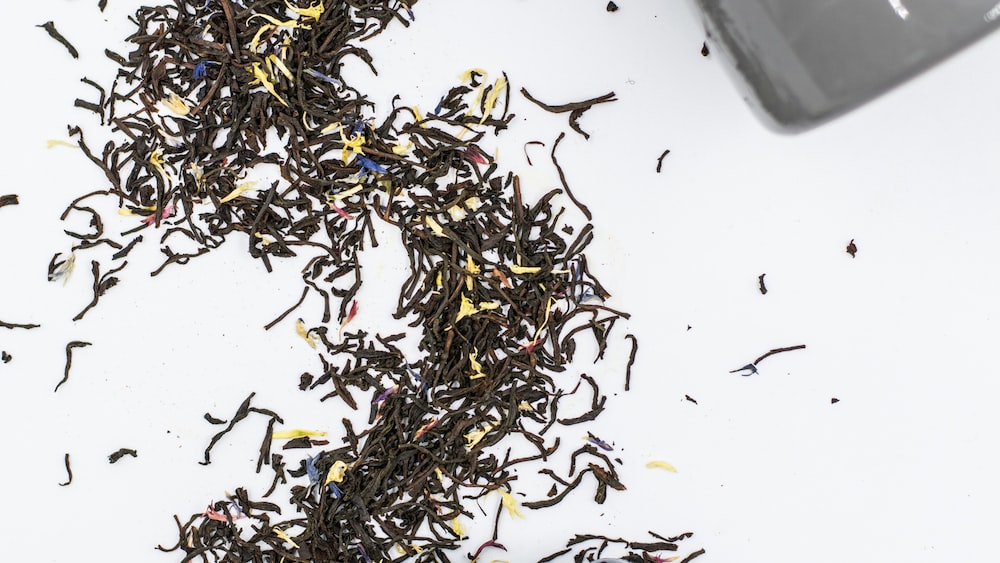
The Role of Oral Hygiene in Preventing Teeth Stains
You may remember the days when your mother chased you around with a toothbrush and the dreaded floss. You might have thought she was just a hygiene enthusiast. But lo and behold, she was on to something besides cavities.
First, without proper brushing, the tannins from your favorite white tea (and other staining villains like coffee and dark foods) happily stick around on your teeth’s enamel. Therefore, brushing at least twice a day, especially before bed, is crucial.
Second, flossing is not just about evicting the food lodged between your teeth, it’s your armor against stains. Habitual flossing removes the plaque that acts as a sticky host for stains.
Third, don’t underestimate the power of a good old routine dental checkup. Regular dental cleaning can help you stay on top of any potential staining or other oral health issues.
How Diet and Lifestyle Affect Teeth Staining
You might be doing everything right on the oral hygiene front, from brushing twice daily to consistent flossing. But if you’ve been recklessly indulging in certain foods and beverages, then teeth stains will show up at your door like uninvited guests.
Consumption of staining agents, such as coffee, dark sodas, and certain foods like berries, curries or tomato-based sauces can contribute to teeth discoloration. Topping the list are acidic foods and drinks that tend to erode the enamel, making the teeth more susceptible to stains.
On the flip side, including a lot of crunchy fruits and vegetables in your diet can act like a natural brush, helping to keep your teeth clean. So next time you reach out for a snack, ask yourself this, will this snack paint my teeth or polish my smile?
Frequently Asked Questions
1. How does white tea compare to other teas in terms of staining teeth?
In terms of staining teeth, white tea tends to be less of a culprit than other teas. The light color and delicate flavor of white tea mean that it contains fewer tannins – the main “sin” causing teeth staining. So, all you tea drinkers out there, rest assured, your beloved white tea is far gentler on the pigmentation of your pearly whites than its darker cousins.
2. Can I prevent white tea from staining my teeth?
Absolutely! While white tea might be a lesser cause of teeth staining, it doesn’t mean it can’t leave a mark. Prevention tips include limiting intake, drinking through a straw to reduce contact with teeth, and maintaining a rigorous oral hygiene regime. So, yes indeed, while there can be a downside, you have the power to prevent white tea from staining your teeth.
3. Are there any remedies to remove white tea stains from teeth?
Yes, there are remedies to remove white tea stains from teeth. Simple yet effective remedies include using a teeth-whitening toothpaste, regular brushing and flossing, and professional dental cleaning. For stubborn stains, consult a dental professional for advice and treatment. Don’t let a little stain deter your love for white tea, there’s always a remedy at hand!
4. Does the temperature of the tea affect teeth staining?
As strange as it might sound, the temperature of your tea does, in fact, impact staining. Drinking tea at a higher temperature can cause small “cracks” in your tooth enamel that allow stains to set in more deeply. So, the cooler your tea, the better it can be for your teeth. Ain’t science a wondrous thing?
Conclusion
In our quest to find out if white tea can stain your teeth, we’ve unearthed some fascinating facts. Yes, indeed, dear readers, white tea, while lighter in color and softer in flavor than its tea counterparts, still carries a potential to stain.
Yet, before we despair or ditch our favorite beverage, remember, knowledge is power. Understanding that tannins are the primary culprits, and being aware of how the temperature of the tea can have an impact, gives us the ability to take preventive actions.
To sum it up, can white tea stain your teeth? The answer lies in shades of grey. If drank in moderation and with a follow-up of good oral hygiene, there is little to worry. If you consume it by the galleons and neglect your toothbrush, you might notice a change.
This tea-soaked adventure proves yet again that even the humblest of activities, like drinking tea, carries a ripple effect of consequences and repercussions. So, keep enjoying your white tea and let not the fear of a stain dampen the pleasure of a perfect brew.
With love, steeped in all things tea,
Zoe

